Has your Facebook group engagement dropped off? Want to inject new life into your community?
In this article, you'll discover some of the biggest mistakes businesses make with Facebook Groups and how to fix them.
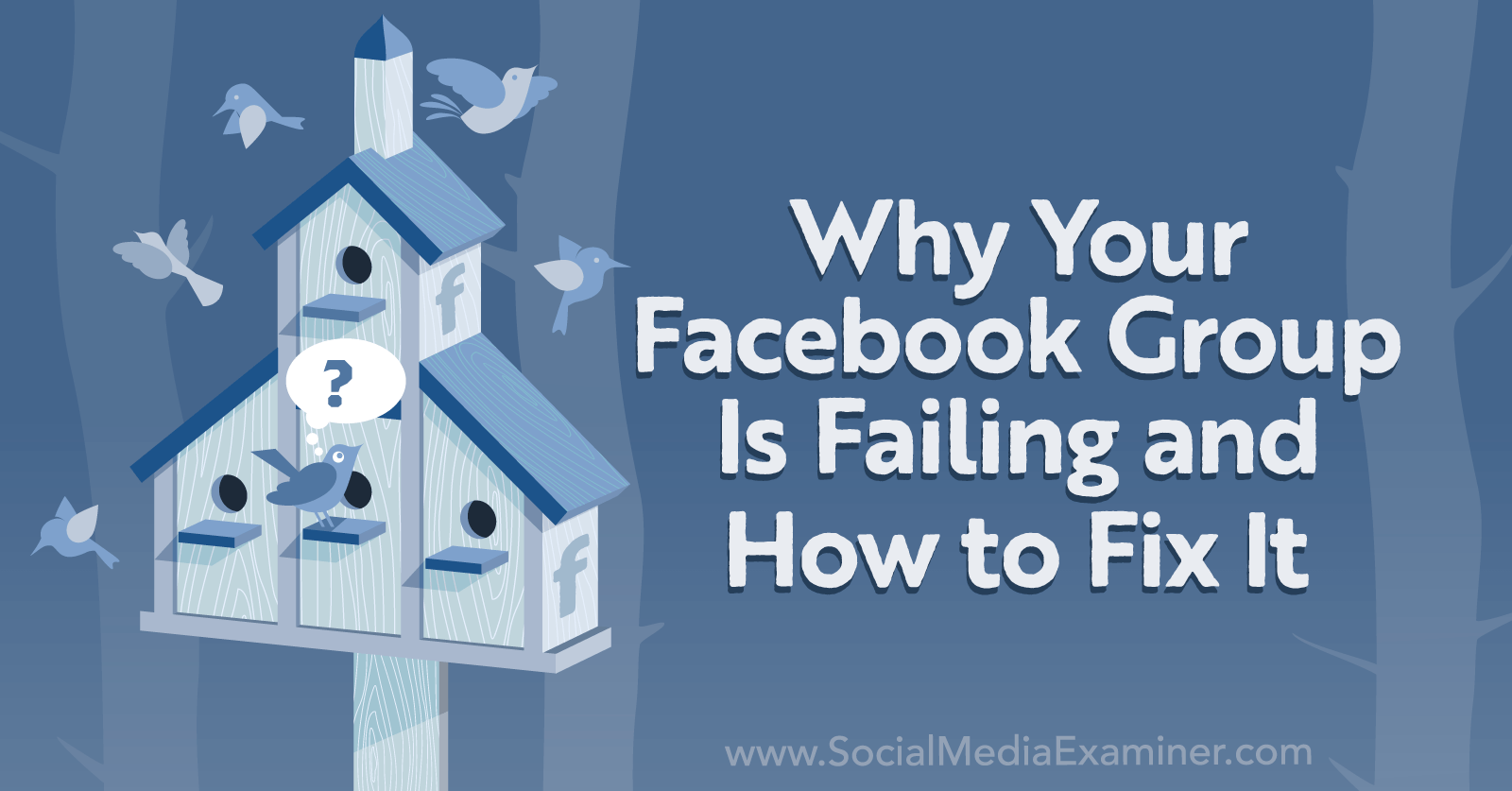
Why Facebook Groups Still Work for Building Community
If you're wondering if Facebook is still a good option for building your business, the truth is there's no other social media platform right now that can supercharge your community in the same way that Facebook does.
Of course, Facebook is still the largest social media platform. And not only are they the largest, but they've also spent the most time developing tools and features that focus on community building.
Not only that, but if done well, then a community on Facebook is one of the only branding assets that actually requires less effort and attention from you the more it grows.
For everything else on social media, the more you grow, the more effort you have to put into maintaining your presence and engaging with your community. This isn't the case with Facebook groups like Boss-Moms because as you grow, your community becomes more involved. Natural leaders will emerge from within the community and help keep the conversation on track. Senior members will take on the responsibilities of welcoming your newer members and helping establish the group culture.
You won't have to be there babysitting and commenting on every single post in an attempt to keep the engagement up because your community will be there for you. You won't have to moderate the content or make sure that no one's breaking the rules because, again, your community will be there.
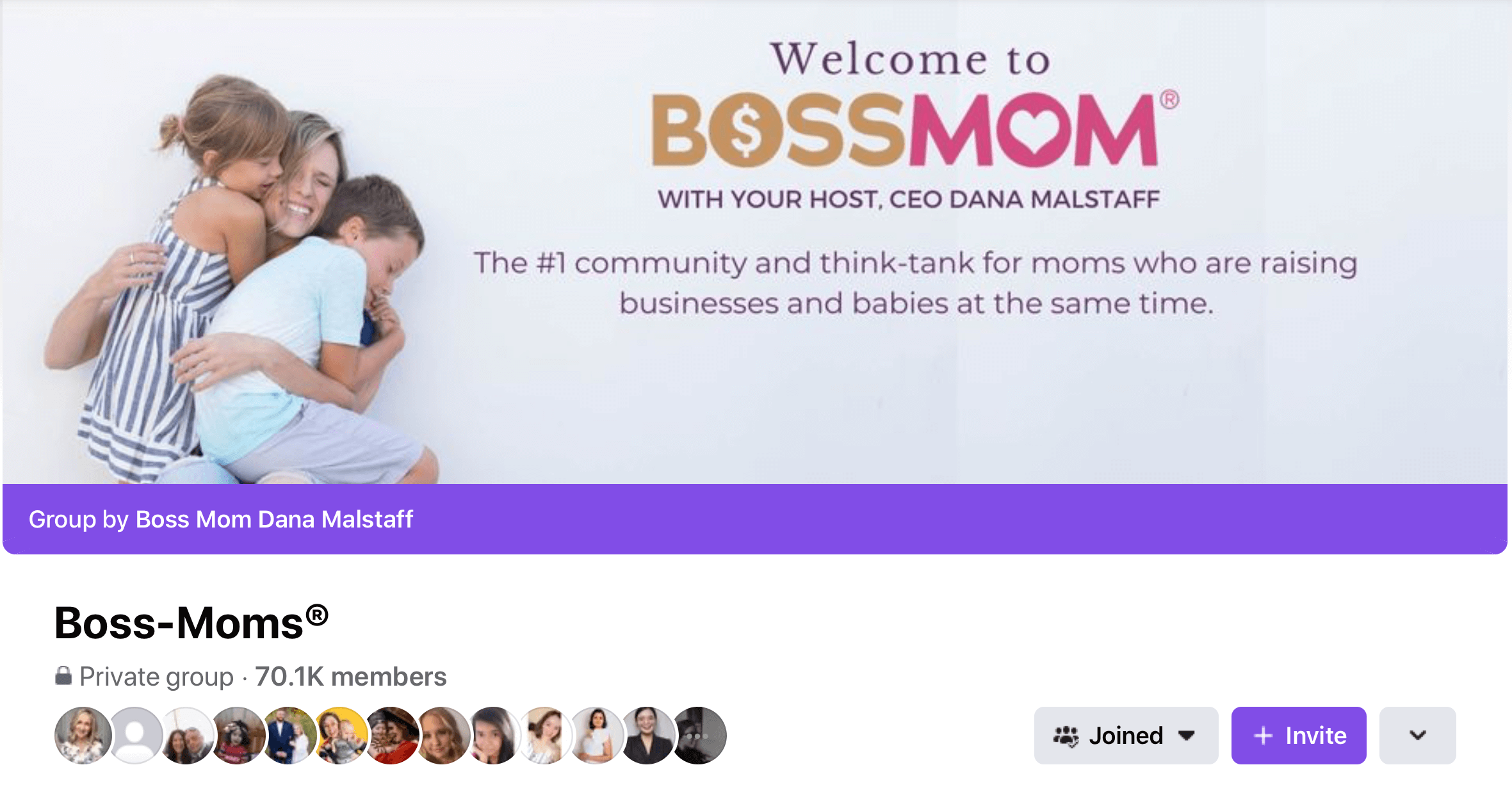
If you've built a community with a very strong sense of culture, then you won't even have to worry about creating content for the group all that much. The more people in your group, the more content will be posted for you. It feels counterintuitive because anywhere else on social media, the more people who join and follow you, the more you have to create and manage content to keep them engaged. But Facebook groups don't follow the same rules.
#1: 5 Common Mistakes to Avoid in Facebook Groups
If you're not getting the Facebook group engagement you want, some of these common mistakes might be holding you back.
Sharing Motivational Posts
One of the first mistakes that businesses make when it comes to building their Facebook communities is they forget to think about how their content within the group will build the culture of that group.
For example, they'll post a lot of motivational posts. Sometimes these motivational posts will contain pieces of their story or a piece of their day, and most of the time, the community really likes these posts. As a matter of fact, these posts often seem to get a lot of engagement because the community likes them so much.
Unfortunately, these posts also tend to be fairly empty and offer next to no value to the community at all. Even the engagement that those posts do garner from the community is empty comments. Those are the type of posts that you see a lot of "you got this" and similar other congratulatory comments. But what you don't typically find is a conversation starter.
So these posts feel good because the creator receives some validation for their achievement and the community gets to validate their achievement. But that's where the engagement ends. After a while, the community stops coming to see those because there's no communication happening. There's no conversation happening.
If the creator has initiated the culture of the group by posting their own motivational posts, this trains members of the community that it's okay to post those types of motivational posts. But if motivational posts bring in no value and can't start any conversations, then the culture within that group falls flat.
Discover 125+ In-Depth Workshops—All in One Place

Curious about TikTok? ✅ Want to boost organic Facebook growth? ✅
In the Social Media Marketing Society, you get access to 125+ deep-dive training workshops from the industry's leading experts—live and on-demand. Explore training on trending topics for all major platforms, plus sessions covering email marketing, design, and video creation. It truly is your one-stop-shop for marketing greatness.
JOIN THE SOCIETY TODAYPosting Out-of-Context Photos
Another mistake that a lot of marketers and brands make with their groups is posting too many photos of themselves instead of posting something relevant to the topic at hand. We see this a lot when a creator will ask a question or tell a story and then follow it up with "photo for attention."
Unfortunately, those types of photos don't attract attention because most of the time that's not why the community is there. People joined the community to get closer to the answer that you as a business provide, not to see photos of you and irrelevant questions. If you're going to post a picture in the group, make sure that the picture has some context to it and it's relevant to the post itself.
Branding Your Content
Businesses and marketers also tend to go overboard with branding everything that goes into their group. Every photo, every graphic, every quote, they try to attach their brand and their logo to all of it. But all this actually does is cause brand fatigue with your community members.
People start to tune that out after a while because they're not there to have your brand shoved in front of their face. Again, they're there for the answer that your brand or business offers.
Publishing Teaching Posts
And this can also bleed into any coaching materials or teaching materials that you try to post in your group. A lot of businesses and brands have groups specifically to coach their community on the skills, services, or products they typically sell. The problem with constantly posting teaching materials is that even the people who sign up to be inside your community don't want to be constantly talked at.
Remember the first goal of any community is to have a conversation, which, by its very nature, is a two-way street. By always posting teaching materials, your community will eventually tune out those materials to go find a conversation elsewhere.
Not Setting Clear Boundaries
Last but not least, it's important to establish strong boundaries within your Facebook community.
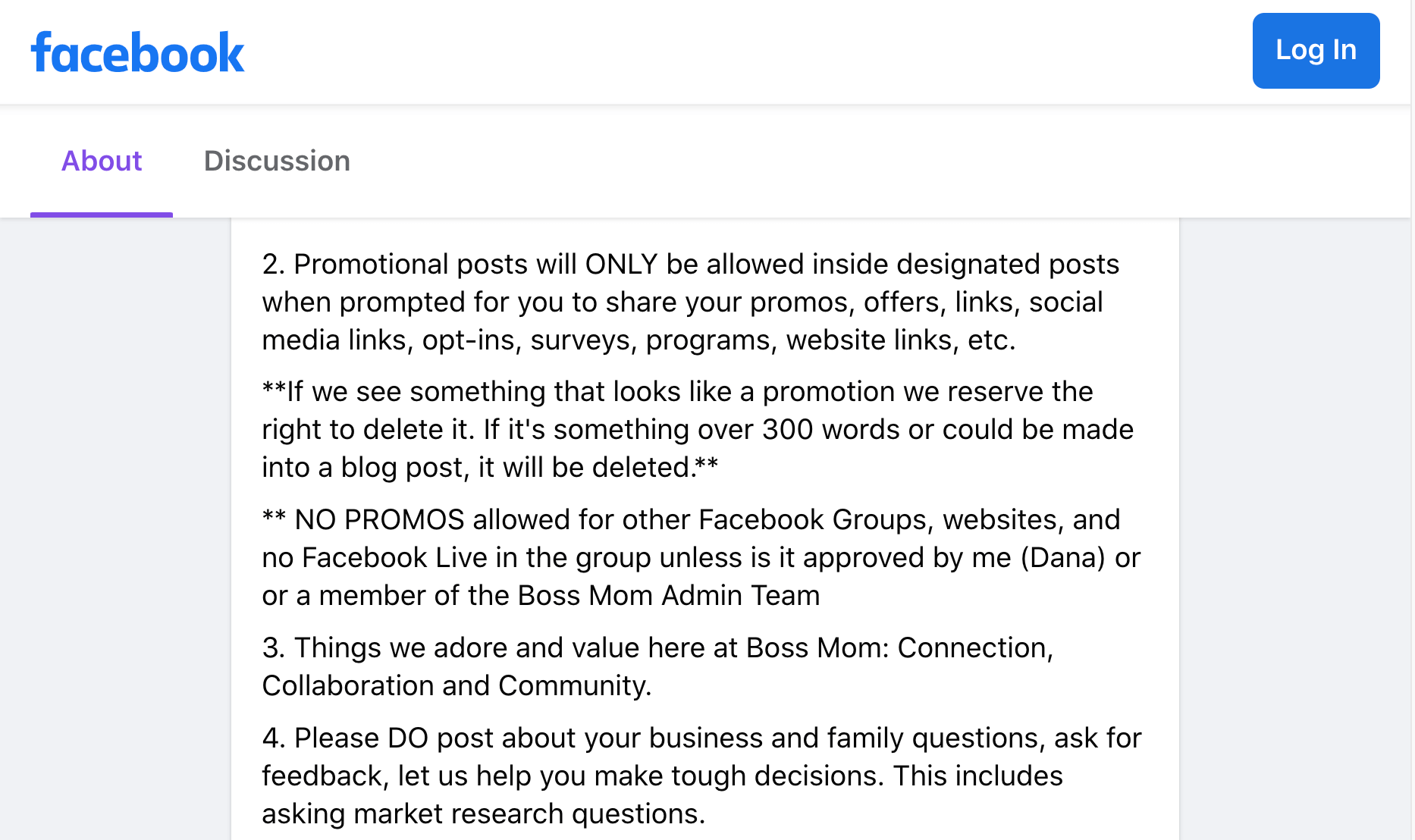
Groups without boundaries allow every member to post anything they like at any time. And if you did a good job of setting up the culture and training your members on the type of content to share, then this isn't always a problem. However, especially in smaller or newer groups, not having any boundaries established can make the group feel confusing and hard to follow.
Many times, different strong personalities come up and start to take on the role of leadership within the community, thereby establishing their own culture within the group.
The first step to establishing your group's boundaries is to decide on the rules for posting. Some common rules that a lot of groups use include things like no motivational posts, no promotional posts, no links, and things along those lines.
Group creators have two options for enforcing these boundaries: place posts on approval only, where members can submit a post to publish and a moderator would then approve the post to be shown to the group, or allow all posts to be published and have a moderator delete any posts that fall outside of the boundaries.
Between these two options, keeping the post approvals turned off and having the moderators delete the posts gives the added benefit of being able to message the author of those posts and let them know which rule the post broke. In this way, you can train new members who skimmed or didn't fully read or understand the rules in your group before joining.
Pro Tip: Facebook has an Admin Assist tool that lets you set up automated content controls for your group. For instance, you could set it up to automatically deny posts that include words you commonly see in promo posts. Additionally, you could set up a rule that if a group member has more than three posts deleted, approval is turned on for a week or two.
Is Web 3.0 on Your Radar?
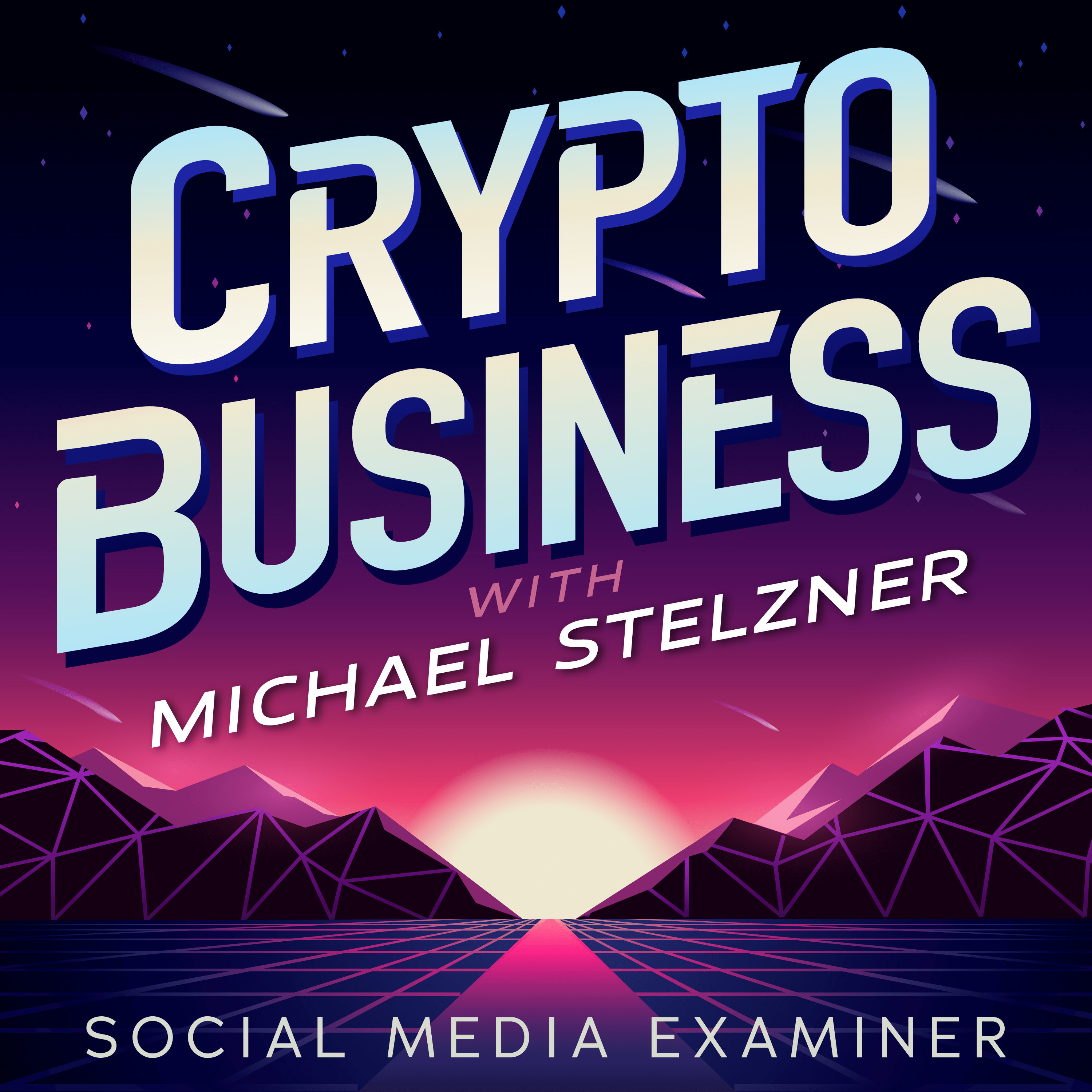
If not, it should be. This IS the new frontier for marketing AND business.
Tune into the Crypto Business podcast with Michael Stelzner to discover how to use Web 3.0 to grow your business in ways you never thought possible—without the confusing jargon. You'll learn about using NFTs, social tokens, decentralized autonomous organizations (DAOs), and more.
FOLLOW THE SHOW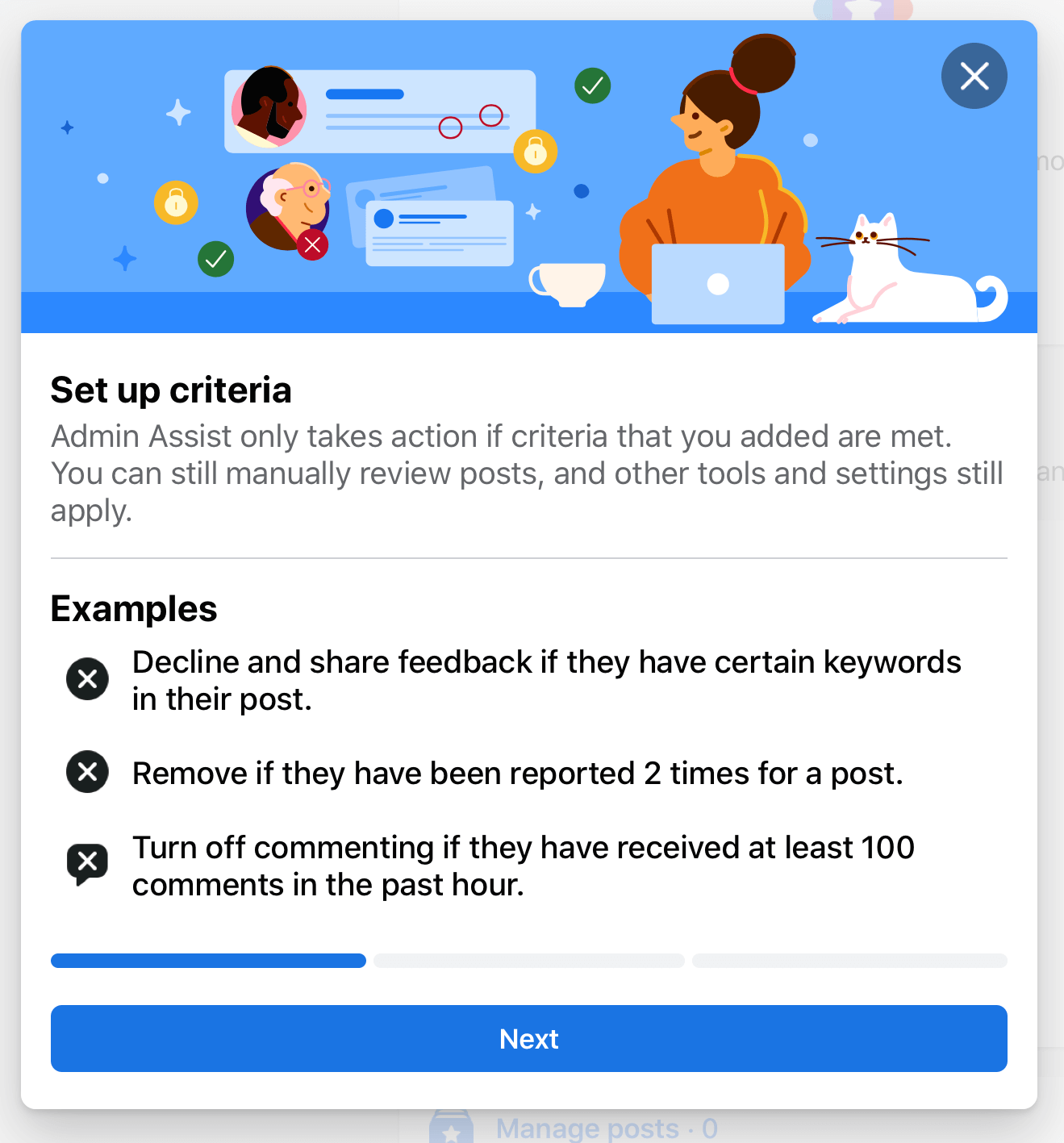
#2: Design Content to Drive Engagement in Your Facebook Group
There are plenty of content formats that we know used to get a lot of engagement and results inside Facebook groups: teaching posts, motivational posts, posts seeking beta testers. Today, these posts fall flat when compared to posts that invite a real conversation.
When it comes to building your content strategy within your group, you want to keep the idea of having a conversation top of mind.
Establish the Culture of Your Group
The key to guiding meaningful conversation starts with setting the culture of your group. Most people think that you do that by saying what your group is about—but that's not it. It involves permissions. Identify something that your target community members tend to feel guilty about and give them permission around that guilt.
For example, if your target community member is a mother who has started a business, a lot of mothers feel guilty about how much they have to work, even when they're working from home. Your group can give them permission for not being able to manage all aspects of their life flawlessly and accept them for being human, which gives them a sense of belonging within your community.
People love to feel as if they've found somewhere they belong, are accepted, and whatever flaw it is that they see in themselves is forgiven.
Once you define what this permission is for your group, it's important to clearly convey it through your content. For example, video is a great way to communicate this permission because people can see your face and hear you talk. Upload a video and pin it to your featured section so it's the first thing people see when they come into your group.
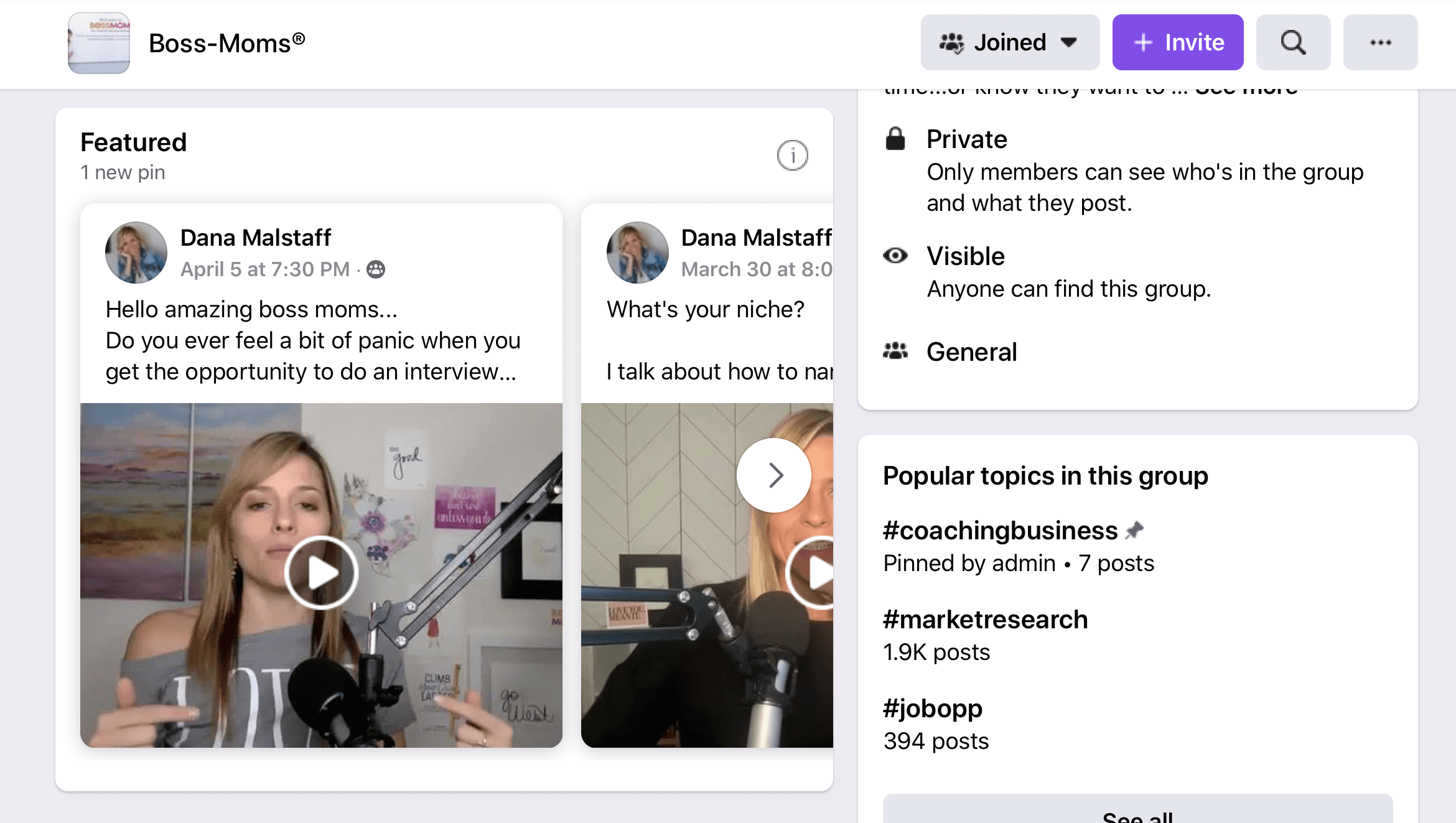
You could also create Facebook group units that explain how members can get the most out of your group.
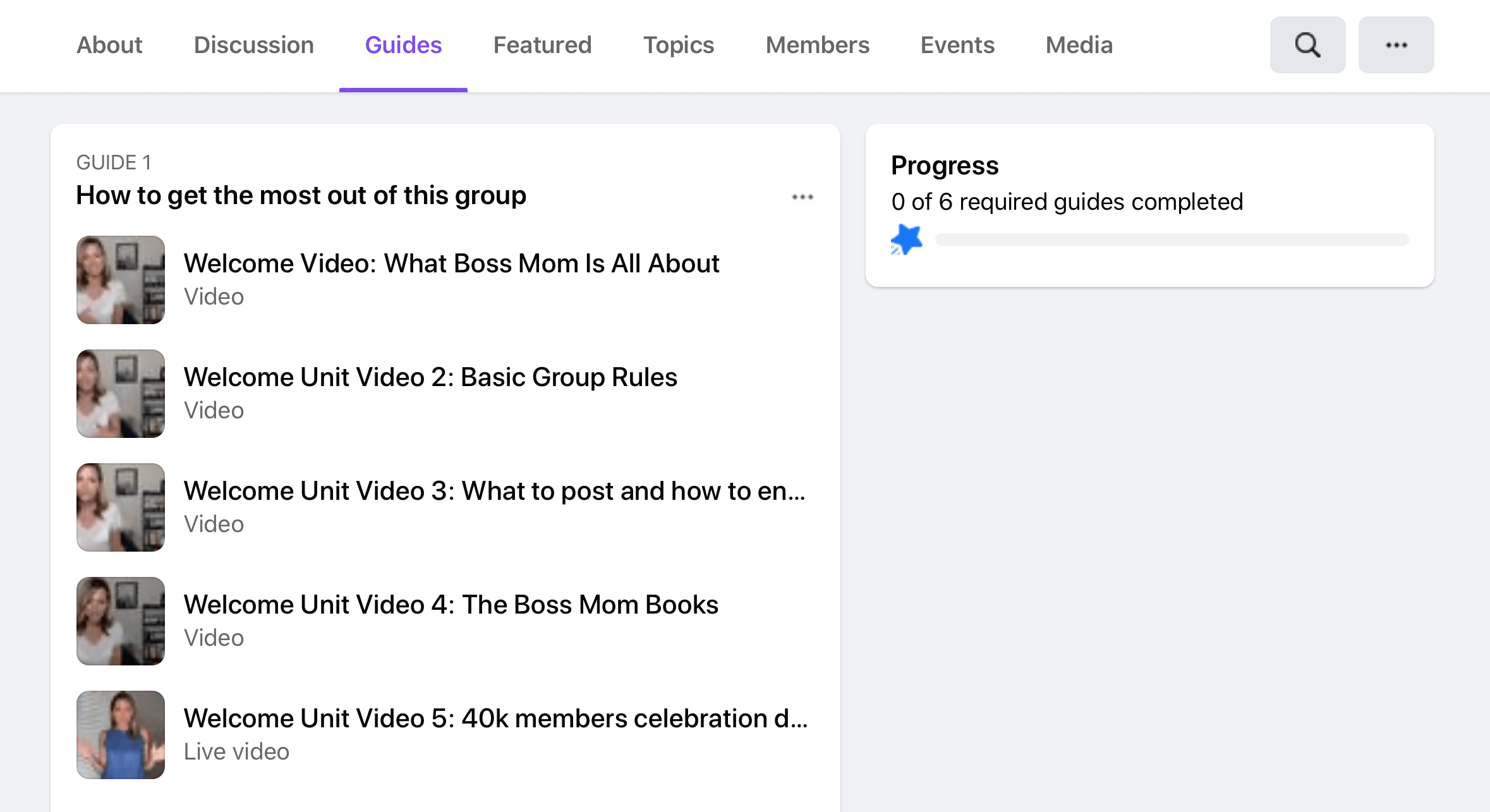
Prompt Meaningful Conversation
The good news is there are plenty of ways to invite conversion that aren't so different from what used to work in Facebook groups. For example, you can include a lot of prompts. Many people enjoy answering questions or responding to prompts. They like giving advice and opinions.
Depending on the type of group you're running, you can include the occasional prompt that allows them to talk about their business such as asking about their podcast. This will help train the community to watch for those types of opportunities and keep those types of posts gathered together into one thread.
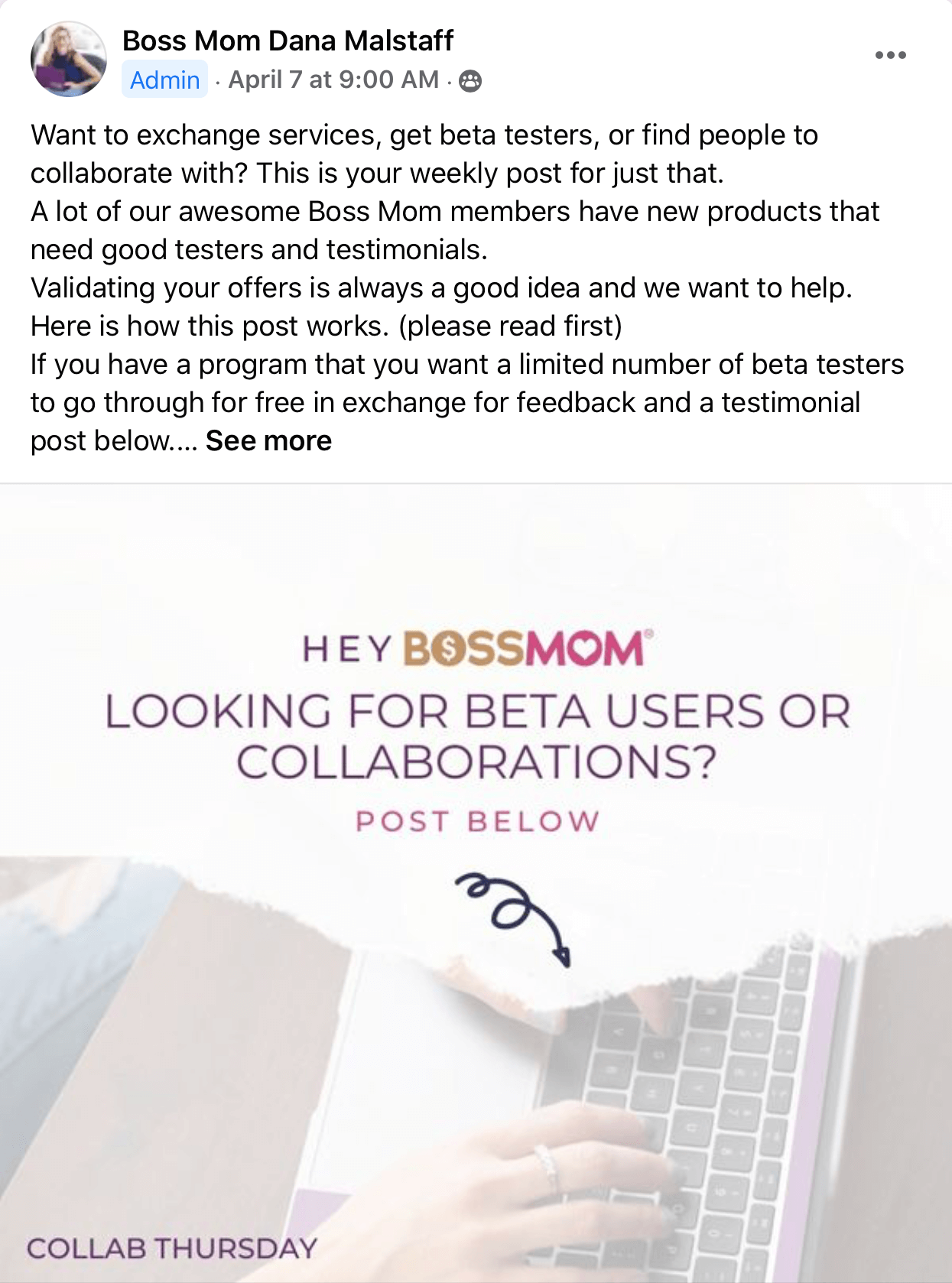
The really nice thing about asking your community questions is that you can ask them about just about anything and get some really great engagement. For example, you can ask certain questions for market research. You can ask them about tools that they use or need to develop new products. You can ask them for help making a decision regarding something within your community.
Not only will asking these questions keep your community active and engaged, but it also gives you critical insights into why they're in your group and what you can do to keep them there.
#3: Respond to Comments to Encourage Further Engagement in Your Facebook Group
One important thing to remember as you post questions in your group is that you're aiming for conversation. Therefore, make sure you respond and invite responses to comments.
There are a few different strategies you can use to accomplish this but one of the most effective practices is to spread out your responses to member comments throughout the day. Every time you reply to someone's comment, it boosts the post back up to the top of the group, which puts it in front of everyone's eyes again, and invites more conversation.
It's important for you to respond in the same way that you posted the original post. If you have a large team of people helping you manage your page, and you want to post using your personal account, then your personal account should be responding to comments along with everyone else.
If you post as your page, your page should be responding to comments with everyone else. If you use your personal account to post into your Facebook group and then leave the group so other people can handle comments, it can actually hurt your overall engagement within the Facebook algorithm because it'll be seen as you abandoning the post.
#4: Convert Facebook Group Members Into Customers
First, if you're not collecting email addresses from your community members when they join your group on Facebook, then you're really missing out. One of the best ways to help convert your community members into customers is by having them on your email list. Then about once a week, depending on how much traffic your Facebook community receives, post your ask.
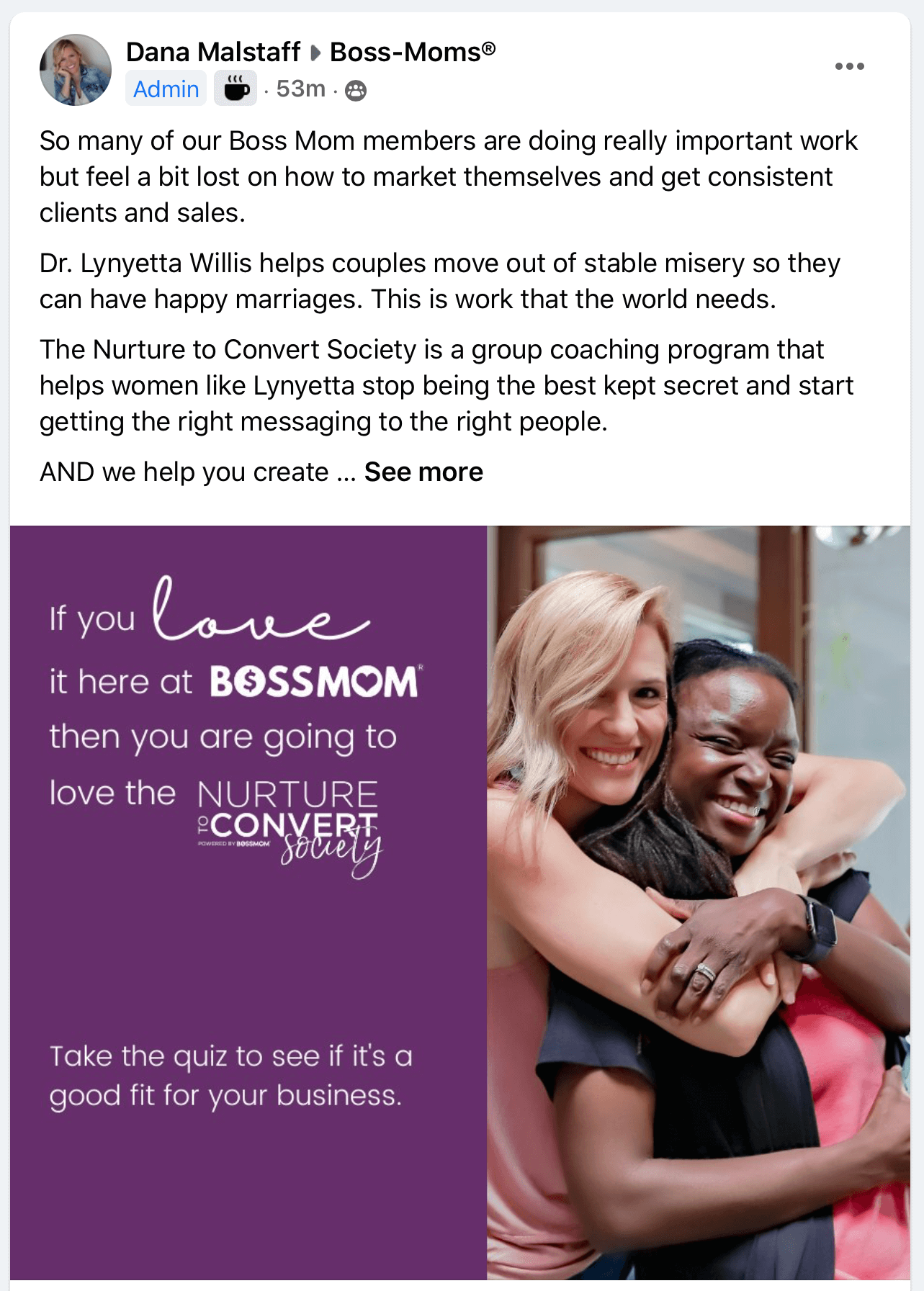
This should be one of your offers, not one of your opt-ins. And of all of the posts in your group, this is the one you want to make sure is branded.
Think of these asks as billboards. They're not going to get a lot of engagement, but when combined with an engaging group and a nurturing email, they'll remind your community members about your offerings. What you'll find is that even on some of your other posts, your community members may ask you about your offer because of an email you sent out.
Dana Malstaff is the author of the book Boss Mom and host of the Boss Mom podcast. She's also the founder of the Nurture to Convert Society, a group coaching program for mompreneurs who hate selling.
- Connect with Michael Stelzner at @Stelzner on Instagram.
- Watch exclusive content and original videos from Social Media Examiner on YouTube.
- Tune into our weekly Social Media Marketing Talk Show. Watch live on Fridays at noon Pacific on YouTube. Listen to the replay on Apple Podcasts or Google Podcasts.
Listen to the Podcast Now
This article is sourced from the Social Media Marketing Podcast, a top marketing podcast. Listen or subscribe below.
Where to subscribe: Apple Podcast | Google Podcasts | Spotify | RSS
✋🏽 If you enjoyed this episode of the Social Media Marketing podcast, please head over to Apple Podcasts, leave a rating, write a review, and subscribe.
Got Tough Marketing Questions? Get the Answers Here

Inside the Society, you get exclusive access to an always-on community of thousands of experienced marketers from all over the world. Including many of our trainers!
That means you can ask tough questions—and get real, actionable answers—on the fly. No more screaming into the void only to be rewarded with *crickets.*
JOIN THE SOCIETY TODAY


0 Comments